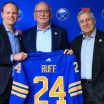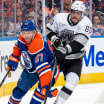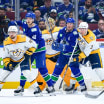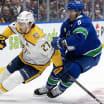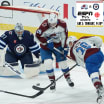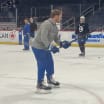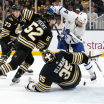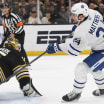The talk paid off in the third period, when after the Capitals predictably surged and scored a game-tying power-play goal at 4:08, the Penguins pushed right back, with a dominating shift-after-the-goal in Washington's zone.
"After they tied it up on the power play we could have folded and said it was a good try, but our team didn't give up," forward Eric Fehr said.
Fehr, a former Capitals player, scored the game-winning goal with 4:28 remaining.
"[Resiliency] always goes a long way no matter what team you play on and no matter what situation," Crosby said. "If you have that ability, you give yourself a chance every night to win. You've got to bounce back and we've done a good job of that all year."
There are theories why that is, starting with Sullivan and the fact he's been preaching resolve and playing their game, staying true to who they are since the day he got to Pittsburgh.
Eventually the message has to sink in if it stays consistent, to the point. The results started to come after Christmas, and the Penguins were 14-2-0 in their last 16 games of the regular season.
"I give our leadership a lot of credit," Sullivan said. "Their resolve gets challenged each and every night and these guys have really done a tremendous job. These guys have just handled situations the right way and that helps our bench."

